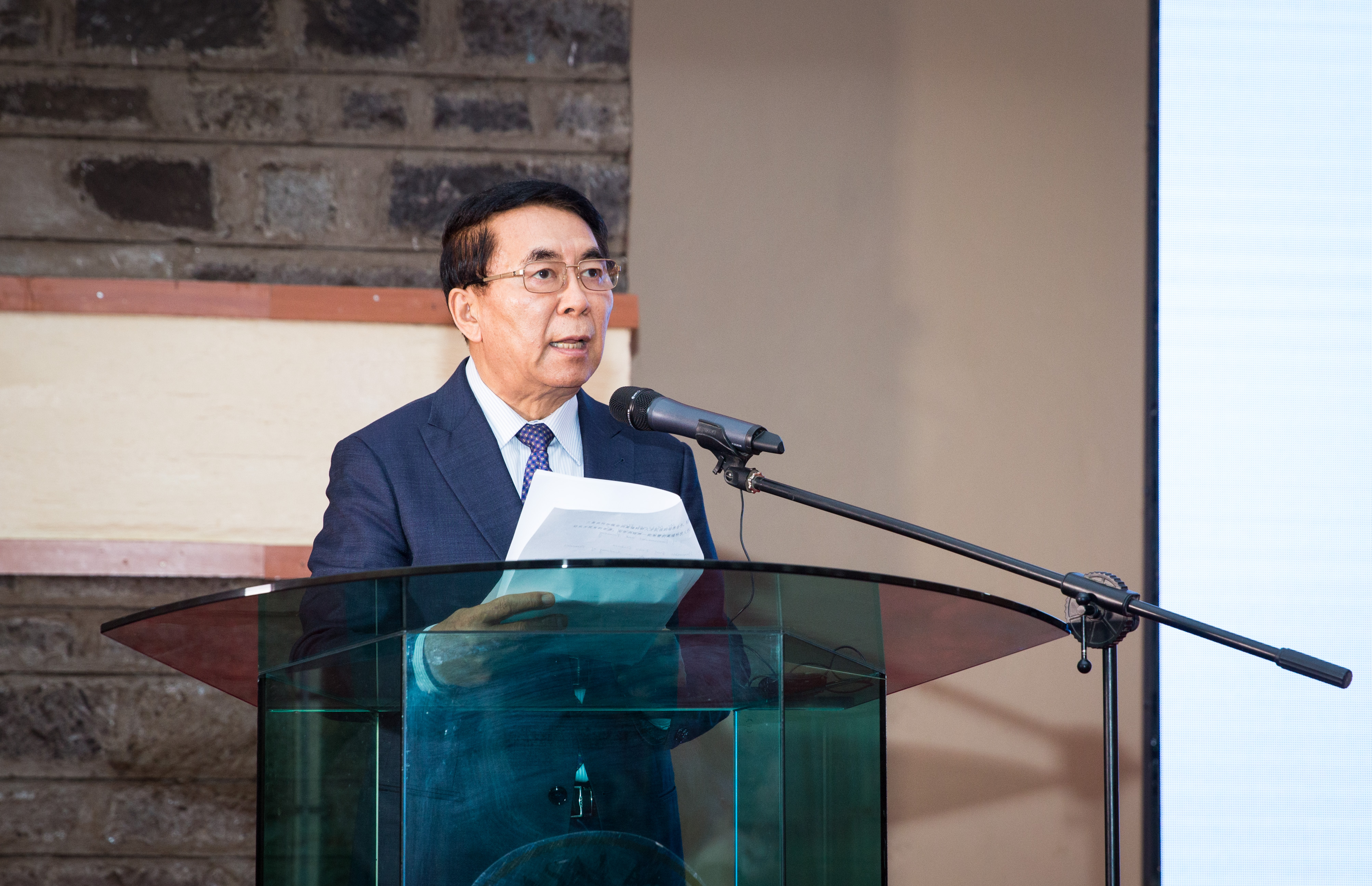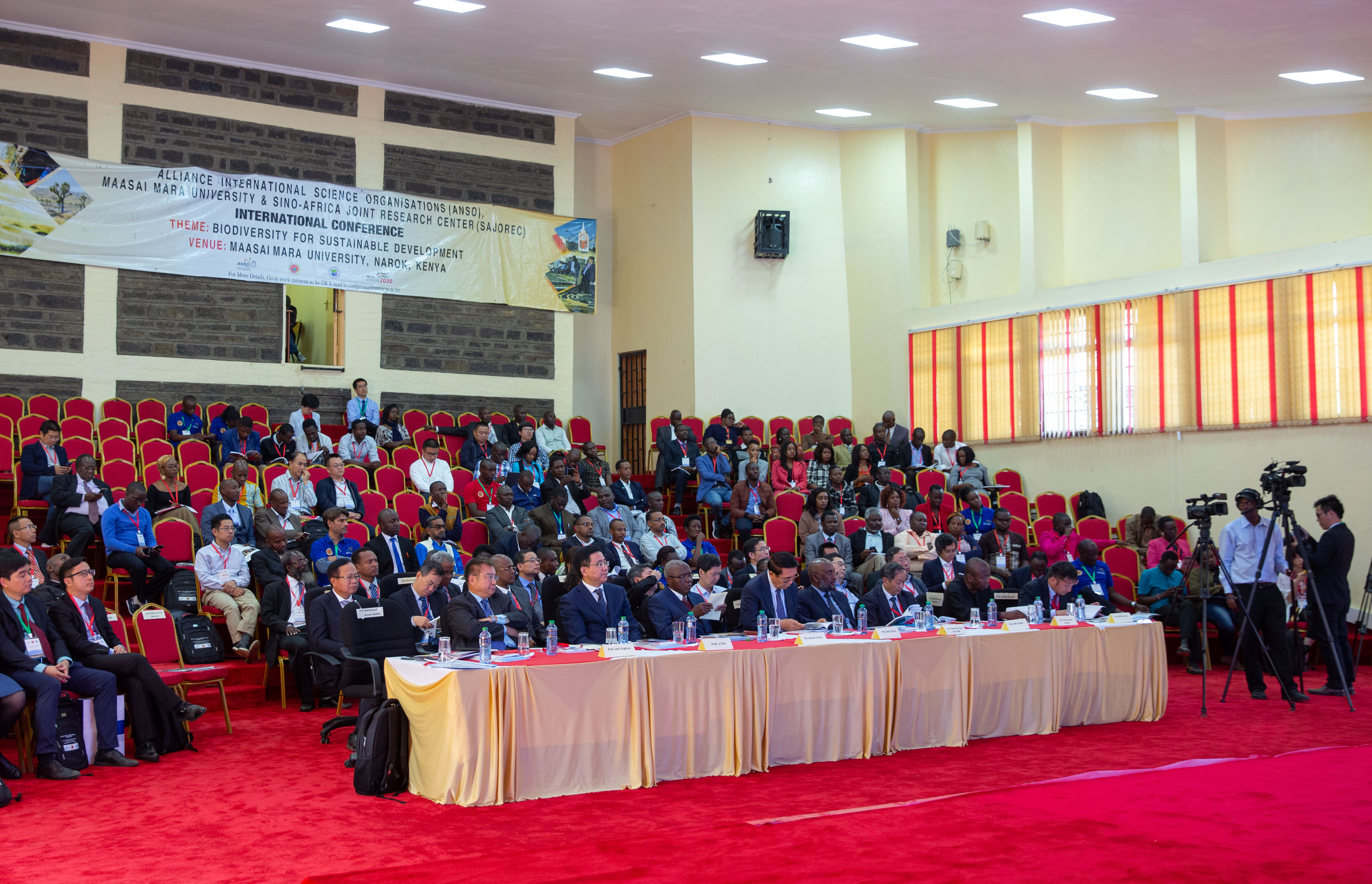Biodiversity conservation has become a critical feature of China-Africa bilateral cooperation.
NAIROBI, Sept. 6 (Xinhua) -- The international biodiversity conference that ended on Friday in Kenya's Maasai Mara University has shed light on the growing contribution of China towards conservation of rare species in Africa.
Policymakers and scientists attending the conference co-organized by Alliance of International Science Organizations (ANSO) and Sino-Africa Joint Research Centre (SAJOREC), noted that biodiversity conservation has become a critical feature of China-Africa bilateral cooperation.

Bai Chunli (3rd R), president of the Chinese Academy of Sciences (CAS), and Bulitia Godrick (2nd L), deputy vice-chancellor in charge of academic and student affairs at Maasai Mara University (MMU), attend an unveiling ceremony of the MMU-CAS Joint Research Laboratories at MMU, about 145 kilometers southeast of the capital Nairobi, Kenya, on Sept. 4, 2019. (Xinhua/Lyu Shuai)
Bai Chunli, president of Chinese Academy of Sciences (CAS), said at the opening ceremony of biodiversity forum on Wednesday that it was timely as Beijing forges strategic alliances with African institutions to promote conservation of rare species.
"By holding this forum, we wish to provide a platform for academic institutions from China, African and other parts of the world to share the experiences and showcase the best practices in conserving biodiversity," said Bai.
He had earlier witnessed the handing over of modern laboratory equipment to Maasai Mara University, located in Kenya's south eastern county of Narok, to aid research on conservation of indigenous plant species that have immense medicinal and nutritional value.

Bai Chunli, president of the Chinese Academy of Sciences (CAS), speaks during the opening ceremony of an international conference on biodiversity at Maasai Mara University, Kenya, Sept. 4, 2019. An international conference on biodiversity co-organized by the Alliance of International Science Organizations (ANSO), Sino-Africa Joint Research Centre (SAJOREC) and Maasai Mara University kicked off here on Wednesday. (Xinhua/Lyu Shuai)
Besides donating the state of the art lab equipment, CAS has through SAJOREC supported establishment of a medicinal plants garden at Maasai Mara University as part of collaborative venture to enhance biodiversity conservation in Kenya and beyond.
Felix Dakora, president of the African Academy of Sciences, said that African countries have leveraged on China's competitive edge in scientific research, technology, innovations and skilled manpower to enhance protection of the continent's natural capital.
"Biodiversity is a major asset for the African continent but it is being destroyed due to climate change and rapid desertification. I hope both the Chinese and African scientists will come up with solutions to reverse loss of habitats," said Dakora.
The Chinese and African Academies of Sciences early this week signed a memorandum of understanding to boost collaboration in diverse areas like natural resources management, public health, food security and climate change.
Kenyan officials hailed the biodiversity summit saying it will provide a platform for Chinese and African scientists to share knowledge and best practices that can strengthen protection of rare species.
Mohamed Elmi, chief administrative secretary in the ministry of environment and forestry, said that China has become a dependable ally in Africa's quest to promote ecological renewal.
"This week's conference symbolizes our true friendship and cooperation with China to help conserve our biodiversity, drylands and wetlands," said Elmi.
He said that Kenya has elevated its cooperation with China in the field of environment through joint research and capacity development aimed at strengthening protection of habitats.
"We are collaborating with China on research in bamboo to help restore our degraded landscapes," said Elmi, adding that joint research between Chinese and African scientists is key to halt loss of critical species like pollinators.

This photos shows the opening ceremony of an international conference on biodiversity at Maasai Mara University, Kenya, Sept. 4, 2019. (Xinhua/Lyu Shuai)
Robert Gituro, Kenyan founding director of SAJOREC, said that Beijing has provided material and technical support to help revolutionize management of Africa's biodiversity.
"Our partnership with China has focused on training of next generation of scientists who are coming back to the content to transfer skills required to boost sustainable management of our biodiversity," said Gituro.
He said that African scientists are keen to harness cutting edge technologies from China to support community led biodiversity conservation initiatives.
Bulitia Godrick, deputy vice chancellor in charge of academic and student affairs at Maasai Mara University, said that African scientists have drawn inspiration from China's advanced technologies and innovations that are providing solution to water scarcity, food insecurity and ecological depletion.



